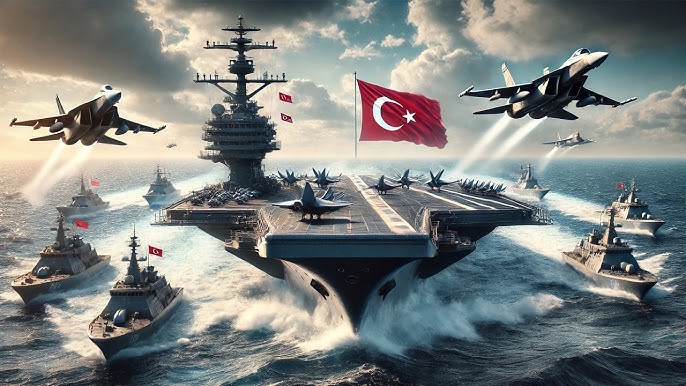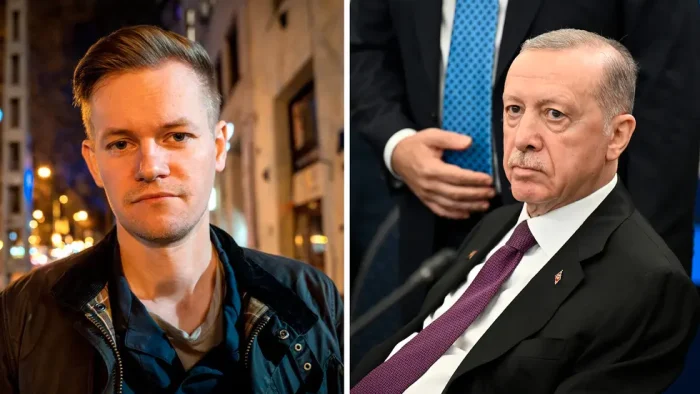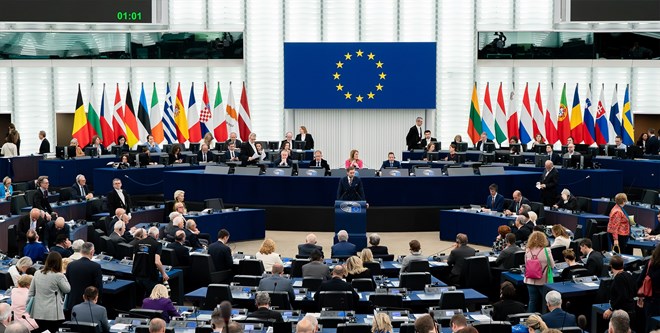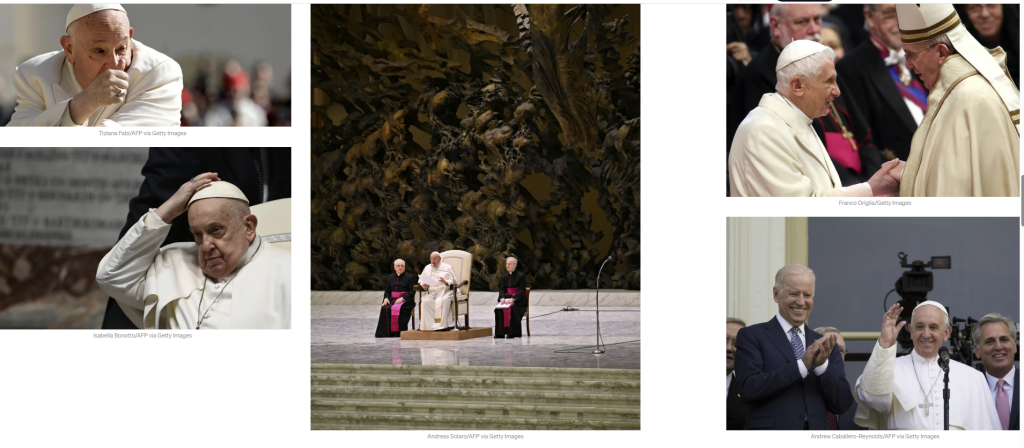Commentary
Trump Revives Greenland Purchase Demand in Heated Call with Danish PM

Danish officials reportedly “freaked out” after Trump’s insistence on acquiring Greenland and threats of tariffs.
Donald Trump has once again brought his ambitions to acquire Greenland into the spotlight, reportedly engaging in a tense and confrontational phone call with Danish Prime Minister Mette Frederiksen. According to senior European officials, the fiery 45-minute conversation last week left Danish authorities in “crisis mode” as Trump pressed his case to purchase the vast Arctic territory.
Sources who were briefed on the call described it as “horrendous” and “a cold shower,” with one official emphasizing Trump’s aggressive tone and clear intent to push for Greenland’s sale. Another described the reaction within Denmark as sheer alarm, noting, “The Danes are utterly freaked out by this.”
Trump reportedly threatened Denmark with targeted tariffs should Frederiksen continue to refuse his demands. This comes as no surprise given the former president’s pattern of linking trade policies with foreign policy objectives. The Arctic island, which spans over 836,000 square miles, is rich in oil, gas, and rare earth materials critical for green technology, making it a valuable target for U.S. strategic and economic interests.
This is not the first time Trump has expressed interest in Greenland. During his first administration, his proposal to buy the territory sparked ridicule internationally, with Frederiksen calling the idea “absurd.” However, Trump’s latest push appears more serious and potentially volatile. Reports suggest that Trump has not ruled out using military force to secure Greenland if necessary, underscoring the geopolitical significance of the Arctic amid growing global competition with powers like China and Russia.
Frederiksen has reiterated that Greenland is “not for sale” and belongs to the Greenlanders. Echoing this sentiment, Greenland’s Prime Minister Múte Egede recently reaffirmed Greenland’s desire for self-determination. Egede stated, “We are Greenlanders. We don’t want to be Americans. We don’t want to be Danish either. Greenland’s future will be decided by Greenland.”
Greenland, an autonomous territory within the Kingdom of Denmark, gained home rule in 1979, although Denmark retains control over its foreign and security policies. For years, Greenland has sought greater independence, with Egede calling for an end to “the shackles of colonialism” during his New Year’s speech.
The U.S. has long recognized Greenland’s strategic importance. The island’s location offers control over Arctic shipping routes and proximity to Russian military installations, further emphasizing its value in the eyes of Washington. Trump’s insistence on acquiring Greenland appears to stem not only from economic considerations but also from a desire to counter global rivals in the Arctic.
However, this renewed push raises serious diplomatic concerns. Danish officials are reportedly grappling with how to respond, fearing potential economic repercussions or increased geopolitical tensions. As one former Danish official noted, “This is a very tough conversation to have with an administration that sees Greenland as a necessity for U.S. economic security.”
For Greenlanders, the renewed attention highlights their precarious position between global superpowers and their desire for greater autonomy. While Trump’s bold overtures may appeal to U.S. strategic interests, they risk further straining U.S.-Danish relations and ignoring Greenland’s aspirations for self-determination.
As tensions escalate, the question remains: Will this be another fleeting diplomatic controversy, or will Trump’s persistence push Greenland into the center of an Arctic geopolitical tug-of-war?
Commentary
Turkey Grabs Oil in Libya, Iraq, and Somalia

Ankara’s foreign energy blitz redefines alliances and reshapes regional order from the Maghreb to the Horn.
When Turkey drills, empires tremble. From war-torn Tripoli to fragile Mogadishu, Ankara’s new oil and gas offensive is anything but business-as-usual. Turkish Energy Minister Alparslan Bayraktar has unveiled what he calls an “energy independence strategy.” But in reality, it’s an audacious geopolitical gamble—Turkey’s bid to carve a petroleum-powered sphere of influence stretching across the Islamic world.
The playbook is clear: leverage unstable states, bypass Western scrutiny, and seal resource deals under the cover of development. Libya is offering 22 oil blocks; Iraq is already riddled with Turkish-backed militias; and in Somalia, Turkey’s petroleum pact grants it 90% of all oil and gas profits—with zero signature bonuses, zero local oversight, and the legal shield of Istanbul-based arbitration.
This is not exploration. This is occupation by oil contract.
Ankara isn’t just after fuel—it’s after leverage. By embedding itself in Somalia’s energy veins, it gains permanent military justification through “infrastructure protection.” By partnering with Libya’s National Oil Corporation, it reasserts control over the Mediterranean’s gas-rich corridors. And with Iraq, Turkey exploits northern Kurdish tensions to extract hydrocarbons without Baghdad’s blessing.
Meanwhile, Turkish warships escort seismic survey vessels and defend maritime “agreements” in disputed waters. This isn’t soft power. This is oil-fueled hegemony—strategic encirclement masked as economic cooperation.
The West watches but does not act. The EU, paralyzed by energy dependence and diplomatic fatigue, has neither the will nor the leverage to counter Turkey’s energy imperialism. Russia and China are too busy elsewhere. And Arab rivals like the UAE and Egypt are being outflanked in their own backyard.
Somalia, meanwhile, is selling its future for the illusion of protection. In Mogadishu, officials boast of Turkish patrols and training programs. But behind the scenes, sovereignty is being auctioned off—field by field, barrel by barrel.
Turkey’s energy invasion is not just about pipelines. It’s about reshaping who holds power in the post-American Muslim world. And unless challenged, Ankara’s strategy could redraw the energy map of the 21st century.
Turkey’s Somali Oil Grab: A Strategic Coup or Neocolonial Exploitation?
Erdogan’s Ottoman Hustle: How Turkey Is Playing Trump to Crush American Business in Africa
Erdogan’s Horn of Africa Power Grab: Is the Turkish Military Winning Somalia’s Capital?
Commentary
Swedish journalist faces 12 years in Turkish prison after ‘insulting’ Erdoğan

As Turkey drags a Swedish reporter through terrorism courts, Erdoğan’s war on journalism crosses borders and shreds NATO diplomacy.

Sweden vs. Sultan: Erdoğan Targets Journalist with 12-Year Sentence. Joakim Medin, a Swedish journalist, faces 12 years in a Turkish prison for reporting on opposition protests. Erdoğan calls it terrorism — Sweden calls it journalism. Trial begins April 30.
Recep Tayyip Erdoğan’s regime has once again proven that journalism is a dangerous profession in Turkey — especially if it dares to expose dissent. The latest victim? Swedish reporter Joakim Medin, who now faces up to 12 years behind bars on charges that are as politically charged as they are absurd.
His crime? Journalism.
Medin, who traveled to Turkey to cover protests against the politically motivated arrest of Istanbul’s mayor and Erdoğan rival, Ekrem İmamoğlu, was promptly detained. Turkish prosecutors accuse him of “insulting the president” — a charge that, under Erdoğan’s rule, has been leveled at students, artists, and now foreign journalists — and of “membership in a terrorist organization,” meaning the PKK.
This isn’t law enforcement — it’s authoritarian intimidation. This is the Turkish president’s latest attempt to criminalize dissent and muzzle foreign coverage of his crackdown on opposition.
The fact that Sweden — a democratic NATO applicant — is caught in this diplomatic chokehold is no accident. Erdoğan has consistently used Sweden’s perceived support for Kurdish groups as leverage in the NATO accession drama. This arrest adds another card to Ankara’s geopolitical poker hand.
But Turkey’s actions risk detonating more than just diplomatic tensions. They embarrass NATO, undermine freedom of the press, and expose how Erdoğan’s regime blends legal persecution with political blackmail.
What’s more concerning is how quiet European leaders remain as their citizens are jailed for exercising basic freedoms. If the EU and NATO tolerate this, they send a signal to every strongman watching: press freedom is negotiable.
Medin’s trial is set for April 30. If convicted, Sweden will be forced to confront not only Erdoğan’s authoritarianism but also the limits of Western moral authority.
This isn’t just about one journalist. This is about whether democracies can still protect their own — or whether dictatorships now set the rules.

Commentary
EU to Somalia: We’re Not Your ATM Anymore

Brussels signals the end of blank-cheque peacekeeping as AUSSOM pivots to “soft stabilization” — and Somalia is left scrambling for new patrons.
The European Union is pulling back from bankrolling Somalia’s peace mission, pushing Gulf states, China, and the U.S. to shoulder the burden. Is this the end of EU-led stabilization?
A major geopolitical reality check is unfolding in Somalia, and it’s coming straight out of Brussels. The European Union, long the lifeline of Somalia’s peacekeeping budget, has finally said what many suspected: enough is enough. The bloc is no longer willing to foot the bill for a government that can barely govern and a stabilization mission that resembles a bottomless pit.
This is more than donor fatigue — it’s strategic realignment. The EU has made it clear: if Somalia wants peace, it must now find new friends. Gulf monarchies, Beijing’s Belt & Road enthusiasts, and even Washington’s reluctant diplomats are being told to pony up. The era of Europe as Somalia’s financial spine is officially over.
Behind the scenes, Brussels is recalibrating. AUSSOM (Africa Union’s new Somali mission) is being reshaped into a “soft stabilization” force — a fancy term for training and advising instead of bleeding on the battlefield. EU officials say the new approach will focus on building institutions, not saving them. In other words, no more firefighting for failed leadership.
This change is not just budgetary; it’s a political statement. Europe is done being guilt-tripped into propping up a regime that tolerates corruption, fails military reform benchmarks, and routinely alienates even its closest allies.
The Kampala conference was the final warning shot. The message? Somalia’s security is no longer Europe’s exclusive problem. If this mission is to survive, others must step in — or prepare for collapse.
For Somaliland, this shift is a diplomatic opening. As Somalia’s Western patrons retreat, Hargeisa must seize the narrative: we’re stable, we’re strategic, and we’re self-reliant. The global vacuum in Somali peacekeeping is not just a crisis — it’s Somaliland’s moment.
Commentary
Rubio’s “Fake News” Firestorm: Is Trump’s State Department Really Gutting Africa and Human Rights?

Leaked draft sparks outrage as Trump White House plots radical State Department overhaul, Africa programs face existential threat.
A leaked draft suggesting the Trump administration plans to dismantle State Department Africa operations and human rights bureaus draws fierce denials from Marco Rubio and fears of U.S. diplomatic retreat.
The Trump administration appears poised to deliver its most radical foreign policy shift yet—if a leaked executive order draft obtained by The New York Times is to be believed. The document, circulating among diplomats and defense analysts, outlines a sweeping demolition of the State Department as we know it—one that would erase Africa from Washington’s diplomatic map, terminate human rights bureaus, and gut long-standing refugee and democracy programs.
But in a typical 2025 twist, Secretary of State Marco Rubio took to X, dismissing it as “fake news,” accusing The New York Times of falling for another hoax. Yet what’s fueling the fire is not just the leak—it’s the silence from the White House. No clear denial. No press release. Just noise.
If enacted, the order would shut down embassies across sub-Saharan Africa, roll back Fulbright scholarships to only those studying “national security,” and eliminate fellowships designed to bring underrepresented groups into diplomacy. For Somalia, Ethiopia, Sudan, and others—it’s more than abandonment; it’s strategic blindness.
And for Somaliland? The timing couldn’t be clearer. As Hargeisa lobbies to become Washington’s anchor in the Horn, Trump’s pivot away from Africa would leave the region’s fate in the hands of adversaries—Turkey, China, and Russia. Closing American embassies creates power vacuums others are happy to fill.
Rubio’s comment sidesteps the real issue: this isn’t just about budget cuts—it’s about ideology. The leaked order frames the State Department as bloated, slow, and disloyal. It replaces diplomacy with artificial intelligence, seasoned career officers with politically-aligned operatives, and strategic engagement with extractive opportunism—especially on the continent.
Eliminating the Bureau of African Affairs and reducing it to a “special envoy” shows how Trump sees Africa: not as a partner, but as a battlefield for minerals and terrorism—not diplomacy or democracy.
Critics aren’t just reacting—they’re panicking. Foreign policy veterans are calling this a death knell for the U.S.’s global influence. Human rights advocates warn that it will embolden authoritarians. Lawmakers like Rep. Gregory Meeks are already sounding alarms.
What if Rubio’s tweet isn’t a denial—but a distraction?
The truth may be somewhere in between. But one thing is clear: America’s global posture is being rewritten—and Africa is on the chopping block.
U.S.-Africa Relations Under a Trump Return: Insights from Tibor Nagy
Commentary
Pope Francis: The Pontiff Who Broke the Mold

Reformer or Divider? Inside the legacy of the most disruptive pope in modern Catholic history. Pope Francis dies at 88, leaving behind a Church torn between progress and tradition. His reign was bold, controversial, and unfinished. WARYATV analyzes the war he waged within the Vatican.
He was the pope of paradox: a man who denounced capitalism yet clung to Church wealth; who opened the door to gay Catholics but refused to ordain women; who promised transparency but met in secret with disgraced cardinals. He was praised for compassion and condemned for chaos.
From Buenos Aires slums to Vatican marble, Jorge Mario Bergoglio climbed the ranks with Jesuit grit and populist instinct. Elected in 2013 to clean up after Benedict XVI’s scandal-plagued resignation, Francis declared a “Church for the poor” and attacked clerical privilege. His first words were humility; his first actions, upheaval.
He took on the mafia, the rich, and even Trump—slamming the U.S. President’s deportation policies weeks before his death. In return, right-wing media labeled him the “anti-pope,” and conservative cardinals whispered of heresy. Yet his approval among 1.4 billion Catholics soared.
Francis elevated voices from the global south, diversified the College of Cardinals, and made enemies everywhere. Cardinal Raymond Burke, his American nemesis, called his rule “feminized” and openly defied Rome. Francis stripped him of privileges without blinking.
But the chaos wasn’t all strategic. Under his watch, Vatican finances imploded in corruption, and his handling of clerical abuse scandals was erratic at best, complicit at worst. His defenders saw a reformer handcuffed by legacy rot; his critics saw selective justice and inconsistent moral courage.
His theology was more political than doctrinal. He mourned Gaza, challenged Putin, stayed eerily quiet on China’s Uyghur genocide. He was a pope shaped by Argentina’s leftist Peronism: a street fighter cloaked in cassock.
Now he is gone—and the Church he leaves behind is unmoored. 110 of the 138 voting cardinals were his picks, yet his vision may die with him. Vatican alliances evaporate with the white smoke.
Francis didn’t fix the Church. He cracked it open. The war for Catholicism’s soul begins now.

Commentary
Quo Vadis, Somalia? The Third Republic on the Brink of Collapse

Somalia’s own soldiers are assassinating their commanders, selling Somalia’s energy blocks to the highest bidder. Somalia now faces its most dangerous turning point since 1991. Al-Shabaab is raising flags in major towns while the Somali government sinks deeper into chaos, selling off resources and scapegoating enemies.
Is the capital next?
Somalia isn’t slipping. It’s spiraling. The once fragile federal experiment is now visibly shattering—under the weight of incompetence, corruption, and political betrayal.
Mogadishu’s leadership, led by President Hassan Sheikh Mohamud, is flailing at the helm. Al-Shabaab grows bolder by the day, releasing prisoners, raising flags, and walking through military bases unchallenged. In a horrifying echo of Afghanistan, Somalia’s own soldiers are assassinating their commanders, and U.S. diplomats are being evacuated. Even the president himself narrowly escaped an ambush. This is no longer counterinsurgency. This is collapse management.
Desperate for Western attention, Hassan Sheikh has chosen a tactic that reeks of neo-colonial pandering: selling Somalia’s energy blocks to the highest bidder, offering the country’s last resources to Trump-linked interests in the hope of buying security. His ambassador’s bizarre social media auction of Somalia’s oil was less diplomacy than a digital clearance sale of a broken state. The response? Silence in Washington. Chaos in the capital.
Meanwhile, Turkish boots are on Somali soil, drones fly overhead, and the African Union’s peacekeepers are now smeared as al-Shabaab sympathizers by Somali officials trying to dodge accountability. Puntland and Jubaland have already walked out of Hassan’s electoral circus. The remaining federal structure is now a skeleton of legitimacy—held together by the optics of registration drives and donor meetings.
And as al-Shabaab captures Aadan Yabaal—the president’s own hometown—Somalis wake up asking a question they hoped they’d never need to again: Can Mogadishu fall?
Somalia has failed at the elite level. Hassan’s government blames everyone—Egypt, Ethiopia, the AU, even UN diplomats—except itself. It ignores the internal rot, the patronage system, the militarized nepotism, and the utter lack of coherent national strategy.
The result? Al-Shabaab no longer hides. It governs. And the state no longer fights back. It tweets.
Quo vadis, Somalia?
Downward. Fast. Unless something radical, honest, and painfully overdue changes now.
Commentary
Turkish Troops in Mogadishu: A War Cloaked in Denial

Turkey Boots on the Ground: Is Mogadishu Being Outsourced?
Turkish boots on the ground in Mogadishu while Al-Shabaab silently takes over 4 districts. Somalia’s leaders play musical chairs—while militants walk into government offices unopposed. WARYATV exposes the ugly truth.
Erdogan’s Ottoman Hustle: How Turkey Is Playing Trump to Crush American Business in Africa
As Al-Shabaab quietly seizes control of districts, 2,500 Turkish soldiers land—who’s really in charge now?
As Turkish troops land in Mogadishu under a security agreement, Al-Shabaab expands its stealth control. WARYATV investigates the dangerous delusion gripping Somalia’s leadership.
Two Turkish military aircraft touched down in Mogadishu, unloading up to 500 troops—with expectations that number could balloon beyond 2,500. Turkey frames this as counterterrorism cooperation. The truth? Somalia’s so-called “sovereignty” is being subcontracted out while its own leadership collapses from within.
This isn’t partnership. It’s occupation through invitation. While Turkish warplanes bomb Al-Shabaab hideouts, militants are effortlessly patrolling four major Mogadishu districts without resistance—seizing government files, walking into local offices, and telling security guards, “Be back at your post tomorrow.”
Dayniile. Hilwa. Dharkaleey. Gubadleey.
All are now nocturnally governed by Al-Shabaab—without a single shot fired.
Sources within Western military intelligence confirm what the world refuses to admit: the capital is falling in slow motion, and it’s being covered up with press releases about international cooperation.
President Hassan Sheikh Mohamud is already preparing to scapegoat his NISA director and army chief—rumored to be replaced by political loyalists with zero tactical credibility. It’s a page ripped straight from Kabul before the Taliban sweep. The same air of denial. The same security theatrics. The same doomed outcome.
And while Turkish troops march in to supposedly help, Prime Minister Hamse Barre diverts attention with a staged visit to Las Anod—reigniting internal tensions instead of addressing the slow-motion collapse in Mogadishu. It’s all a distraction from a grim truth: Al-Shabaab is winning not by firepower—but by strategy, infiltration, and the cowardice of Somalia’s leadership.
This is no longer a counterinsurgency.
This is Somalia outsourced, Somali leadership imploding, and Al-Shabaab adapting faster than its enemies.
Commentary
Fall of the Caliphate: Puntland Delivers Crushing Blow to ISIS in Somalia

After years of entrenchment, ISIS-Somalia’s last major bastion crumbles under Puntland’s offensive.
Puntland’s latest offensive in the Calmiskaad Mountains isn’t just a military success—it’s a symbolic decapitation of ISIS-Somalia’s regional ambitions. By seizing Togga Miraale, the crown jewel of ISIS’s mountain redoubts, Puntland security forces have dismantled what analysts long described as the terror group’s last command node in the region. The caliphate fantasy is over, at least in Puntland.
This wasn’t a victory won overnight. The month-long campaign through treacherous terrain and entrenched positions was a surgical war of attrition. ISIS fighters, once emboldened by their remote stronghold and a steady supply of weapons, were ground down. With captured stockpiles and dislodged militants, Puntland has dealt ISIS a blow from which it may never recover in northeastern Somalia.
This is more than just a win for Puntland. It’s a pivotal shift in the asymmetric war against jihadist movements in the Horn. While Al-Shabaab remains a dominant threat further south, ISIS-Somalia’s collapse exposes the vulnerability of jihadist splinter factions when faced with sustained, locally-led counterterrorism backed by strategic intelligence.
Moreover, this win couldn’t come at a more geopolitically significant time. As Somalia reels from recent setbacks—including the fall of Aadan Yabaal to Al-Shabaab—Puntland’s success highlights a stark contrast in governance, security, and military capability. It sends a potent message: decentralized Somali regions like Puntland can, and will, defend their territory where the federal government has failed.
Regional players like the UAE and the U.S., both of whom quietly supported this operation with air surveillance and intel, are taking note. So should Mogadishu. As the Somali government continues to lose ground to terrorists in the south, Puntland’s battlefield dominance is not just a local triumph—it’s a rebuke of Somalia’s fragile security architecture.
The caliphate in Somalia didn’t fall with fanfare—it collapsed under the pressure of a region that refused to yield. Puntland now owns the victory. And ISIS-Somalia? It’s a name soon to be remembered only in past tense.
Somalia’s Jihadist Boom: The Islamic State Is Stronger, Richer, and More Deadly
U.S. and UAE Joint Operation Kills 16 ISIS Militants in Puntland Stronghold
Puntland Airstrikes Devastate ISIS Strongholds, Killing Over 30 Fighters
Puntland Claims it Uncovered ISIS Treatment Sites, Business Links in Somaliland
Telegram Shuts Down Key ISIS Propaganda Channel Amid Puntland Conflict
Puntland Forces Close in on ISIS Stronghold, Final Battle Nears
Puntland Forces Crush ISIS Strongholds in Togga Jaceel Offensive
Puntland Clerics Rally Support for Military Offensive Against ISIS in Al-Miskaat Mountains
Puntland Would be Happy to Host Gazan Refugees: Puntland Deputy Minister
In Puntland’s rugged mountains, ISIS builds a dangerous foothold
Senior ISIS Commander Captured in Puntland as U.S. Airstrikes Cripple Somalia’s Jihadist Network
Puntland Cracks Down on Illegal Foreign Nationals Amid Extremism Concerns
Landmine Explosion Kills 13 Puntland Soldiers in Counter-Terrorism Mission
Puntland Forces Strike Major Daesh Strongholds in Bari Region
Islamic State Claims Responsibility for Deadly Puntland Military Base Attack in Somalia
Puntland Deputy Speaker Survives ISIS Attack Amid Rising Threat
Puntland Forces Uncover Major Weapons Cache, Arrest Al-Shabaab and ISIS Suspects in Bosaso
-

 Analysis2 months ago
Analysis2 months agoSaudi Arabia’s Billion-Dollar Bid for Eritrea’s Assab Port
-

 ASSESSMENTS4 weeks ago
ASSESSMENTS4 weeks agoOperation Geel Exposes the Truth: International Community’s Reluctance to Embrace Somaliland as a Strategic Ally
-

 Somaliland3 months ago
Somaliland3 months agoSomaliland and UAE Elevate Ties to Comprehensive Strategic Partnership
-

 Africa1 year ago
Africa1 year agoHow Somaliland Could Lead the Global Camel Milk Industry
-

 Analysis1 year ago
Analysis1 year agoIran escalates conflict, attacking Israel; US forces help Israel to intercept Iranian projectiles
-

 Analysis6 days ago
Analysis6 days agoFrom Cell to Summit: The Prisoner Who Became Syria’s President
-

 Top stories11 months ago
Top stories11 months agoGunmen Kill 11 in Southeastern Nigeria Attack, Army Reports
-

 Analysis1 year ago
Analysis1 year agoIsrael and Iran on Edge: Tensions Escalate Amidst Rising Threats





























